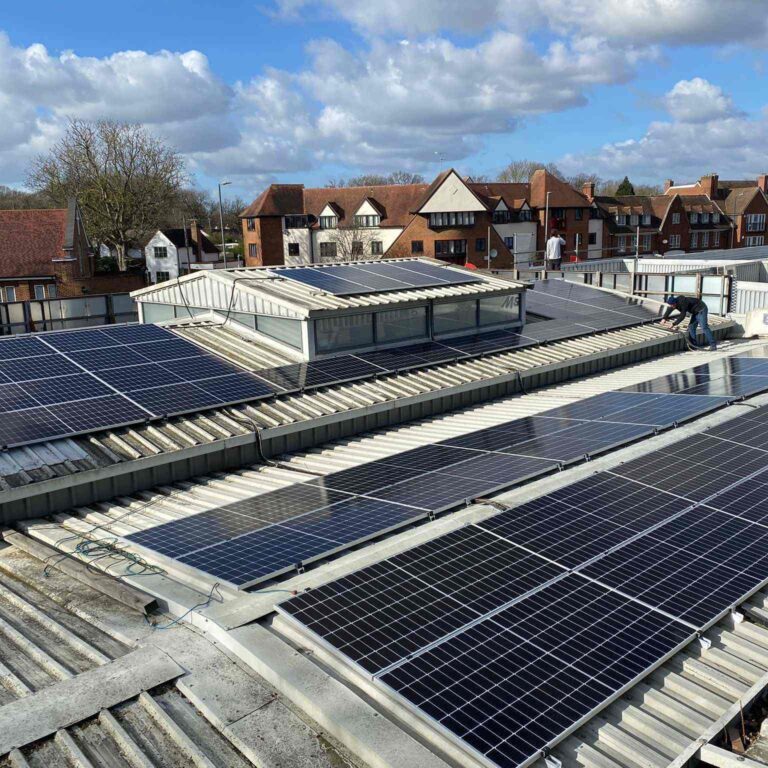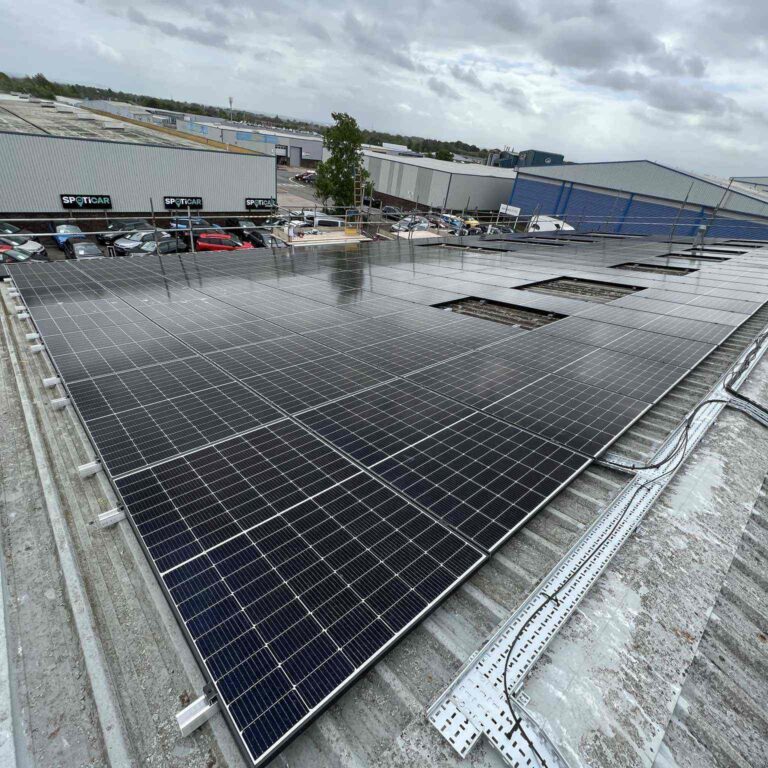In today’s competitive business environment, reducing operational costs and increasing sustainability have become top priorities for companies across the UK. One effective way to achieve both goals is by investing in commercial solar energy. However, the initial cost of installing a solar energy system can be a significant barrier for many businesses. Fortunately, the UK government offers various tax incentives and rebates for commercial solar installations, which can substantially reduce the financial burden and make the transition to solar power more accessible.
This article will explore the key tax incentives and rebates for commercial solar in the UK, helping businesses understand the financial benefits available in their region and how to maximize their return on investment.
Understanding the Importance of Tax Incentives and Rebates for Commercial Solar
Tax incentives and rebates play a crucial role in making commercial solar installations more affordable for businesses. These financial benefits are designed to encourage companies to invest in renewable energy by offsetting some of the initial costs associated with purchasing and installing solar panels. By taking advantage of these incentives, businesses can reduce their upfront expenses, shorten the payback period, and improve the overall return on investment for their solar projects.
In the UK, various tax incentives and rebates are available for commercial solar installations. These include the Enhanced Capital Allowance (ECA) scheme, the Smart Export Guarantee (SEG), and regional grants. Understanding these financial benefits is essential for any business considering solar energy.
Enhanced Capital Allowance (ECA) Scheme
The Enhanced Capital Allowance (ECA) scheme is one of the most significant tax incentives available to businesses in the UK for commercial solar installations. The ECA scheme allows companies to claim 100% of the cost of qualifying energy-efficient equipment, including solar panels, against their taxable profits in the first year of purchase.
How the ECA Scheme Works:
- Eligibility: To qualify for the ECA scheme, the solar energy system must meet specific energy efficiency criteria and be listed on the Energy Technology List (ETL). Businesses should verify that their chosen solar equipment is eligible before making a purchase.
- Financial Benefits: By claiming the full cost of the solar energy system in the first year, businesses can significantly reduce their taxable profits, resulting in lower corporation tax bills. This immediate tax relief can make a substantial difference in the overall affordability of the solar project.
- Maximizing Savings: To maximize the financial benefits of the ECA scheme, businesses should work with their accountants or tax advisors to ensure they correctly claim the allowance and take full advantage of the tax relief available.
Smart Export Guarantee (SEG)
The Smart Export Guarantee (SEG) is another important financial incentive for businesses investing in commercial solar energy in the UK. The SEG allows businesses that generate excess electricity from their solar panels to sell it back to the grid, providing an additional revenue stream.
How the SEG Works:
- Eligibility: To qualify for the SEG, businesses must install solar panels with a capacity of up to 5 MW and be registered with a SEG licensee, which is typically an energy supplier. The solar energy system must also be certified under the Microgeneration Certification Scheme (MCS) or an equivalent standard.
- Financial Benefits: The SEG provides businesses with payments for the excess electricity they export to the grid. The rates offered by SEG licensees vary, so businesses should shop around to find the best deal. This additional income can help offset the cost of the solar installation and improve the overall return on investment.
- Maximizing Revenue: To maximize the revenue from the SEG, businesses should monitor their energy usage and export patterns. By optimizing the timing of energy consumption and export, companies can ensure they make the most of the SEG payments.
Regional Grants and Incentives
In addition to national tax incentives and rebates, many regions in the UK offer local grants and incentives to support commercial solar installations. These regional incentives can vary widely depending on the location, so businesses should research the specific opportunities available in their area.
Examples of Regional Grants:
- Scotland: The Scottish Government offers various grants and loans through programs such as the Community and Renewable Energy Scheme (CARES), which supports renewable energy projects in Scotland, including commercial solar installations.
- Wales: In Wales, businesses can access funding through the Welsh Government’s SMART Cymru program, which provides financial support for innovative energy projects, including solar energy systems.
- Northern Ireland: Northern Ireland offers the Renewable Energy Fund (REF), which provides grants and loans for businesses looking to invest in renewable energy, including commercial solar.
How to Access Regional Grants:
- Research Local Opportunities: Businesses should research the specific grants and incentives available in their region and determine their eligibility. Local government websites, renewable energy organizations, and business support services can provide valuable information on available funding.
- Application Process: The application process for regional grants can be competitive, so businesses should prepare detailed proposals that demonstrate the financial and environmental benefits of their solar projects. Working with an experienced solar installer or consultant can help ensure a successful application.
Combining Incentives for Maximum Financial Benefit
To fully capitalize on the financial benefits of commercial solar energy, businesses should explore the possibility of combining different tax incentives and rebates. By stacking multiple incentives, companies can further reduce the upfront costs and improve the overall return on investment.
Strategies for Combining Incentives:
- ECA and SEG: Businesses can combine the Enhanced Capital Allowance (ECA) scheme with the Smart Export Guarantee (SEG) to benefit from both immediate tax relief and ongoing income from exported electricity. This combination can significantly enhance the financial returns of a commercial solar project.
- Regional Grants and National Incentives: In addition to national incentives like the ECA and SEG, businesses should seek out regional grants that can provide additional funding for their solar projects. Combining local grants with national incentives can help cover a larger portion of the project’s costs, making solar energy more accessible.
- Professional Advice: To ensure they are making the most of the available incentives, businesses should seek professional advice from accountants, tax advisors, and renewable energy consultants. These experts can help navigate the complexities of the tax system and identify the best strategies for maximizing financial benefits.
Conclusion: The Financial Advantage of Commercial Solar in the UK
Investing in commercial solar energy is not only a smart move for reducing energy costs and enhancing sustainability, but it also offers significant financial advantages through tax incentives and rebates. In the UK, businesses can benefit from the Enhanced Capital Allowance (ECA) scheme, the Smart Export Guarantee (SEG), and various regional grants and incentives.
By understanding and leveraging these financial benefits, businesses can reduce the upfront costs of solar installations, shorten the payback period, and achieve a higher return on investment. As the demand for renewable energy continues to grow, taking advantage of these incentives can position UK companies as leaders in sustainability and financial efficiency.
For businesses considering commercial solar energy, now is the time to explore the available tax incentives and rebates. By combining multiple financial benefits and working with experienced professionals, companies can maximize their savings and contribute to a greener, more sustainable future.



